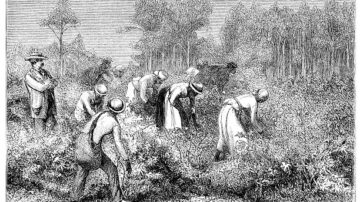The Broken Promise of 40 Acres and a Mule: A Legacy of Betrayal and Injustice. Gen Z & Millennials Now You Know.

The Broken Promise of 40 Acres and a Mule: A Legacy of Betrayal and Injustice. Here’s the story.
In the aftermath of the American Civil War, the United States government made a promise to newly freed slaves that would prove to be a pivotal moment in the nation’s history. The promise of “40 acres and a mule” was meant to provide a foundation for economic independence and self-sufficiency for African Americans emerging from the shackles of slavery. However, this promise would ultimately be broken, leaving a lasting legacy of betrayal, injustice, and ongoing disparities.
*The Origins of the Promise*
In January 1865, as the Civil War drew to a close, Union General William Tecumseh Sherman met with a group of African American leaders in Savannah, Georgia. The meeting resulted in the creation of Special Field Order No. 15, which set aside a significant portion of coastal land in South Carolina, Georgia, and Florida for the settlement of freed slaves. Each family was to receive approximately 40 acres of land, and the US Army would provide them with a mule to aid in their agricultural endeavors.
The promise of 40 acres and a mule was not only a gesture of goodwill but also a pragmatic solution to the pressing issue of providing for the newly freed slaves. With the abolition of slavery, millions of African Americans were left without land, resources, or economic opportunities. The promise of land ownership and economic independence was seen as a crucial step towards rebuilding their lives and creating a brighter future.
*The Broken Promise*
Despite the initial enthusiasm and optimism surrounding the promise of 40 acres and a mule, it would ultimately be broken. President Andrew Johnson, who succeeded Abraham Lincoln after his assassination, proved to be a major obstacle to the fulfillment of this promise. Johnson, a sympathizer of the Confederacy, was determined to undermine the Reconstruction efforts and limit the rights and opportunities of African Americans.
In the summer of 1865, Johnson began to systematically dismantle the land redistribution program, allowing former Confederate landowners to reclaim their properties. The US Army, which had been tasked with overseeing the land redistribution, was withdrawn, leaving the freed slaves vulnerable to exploitation and violence.
The broken promise of 40 acres and a mule had far-reaching consequences. Without land ownership and economic independence, African Americans were forced to rely on sharecropping and tenant farming, systems that perpetuated poverty, debt, and racial subjugation. The lack of economic opportunities and resources also limited access to education, healthcare, and other essential services.
*A Legacy of Injustice*
The broken promise of 40 acres and a mule is a stark reminder of the United States’ long history of betraying its promises to African Americans. From the failure to provide reparations for slavery to the ongoing disparities in education, housing, and economic opportunities, the legacy of this broken promise continues to haunt American society.
The struggle for racial justice and equality in the United States is, in many ways, a struggle to fulfill the promise of 40 acres and a mule. It is a reminder that true freedom and equality require more than just the absence of slavery; they require access to resources, opportunities, and economic independence.
*Conclusion*
The promise of 40 acres and a mule remains an unfulfilled obligation, a testament to the United States’ failure to provide true freedom and equality to its African American citizens. As we continue to grapple with the ongoing legacies of slavery, racism, and inequality, it is essential that we remember this broken promise and work towards creating a more just and equitable society for all.
The story of 40 acres and a mule serves as a powerful reminder of the importance of keeping promises and fulfilling obligations, particularly when it comes to issues of racial justice and equality. As we move forward, it is crucial that we prioritize truth, reconciliation, and reparations, working towards a future where the promise of freedom and equality is finally fulfilled.
Your Life-Your Future


